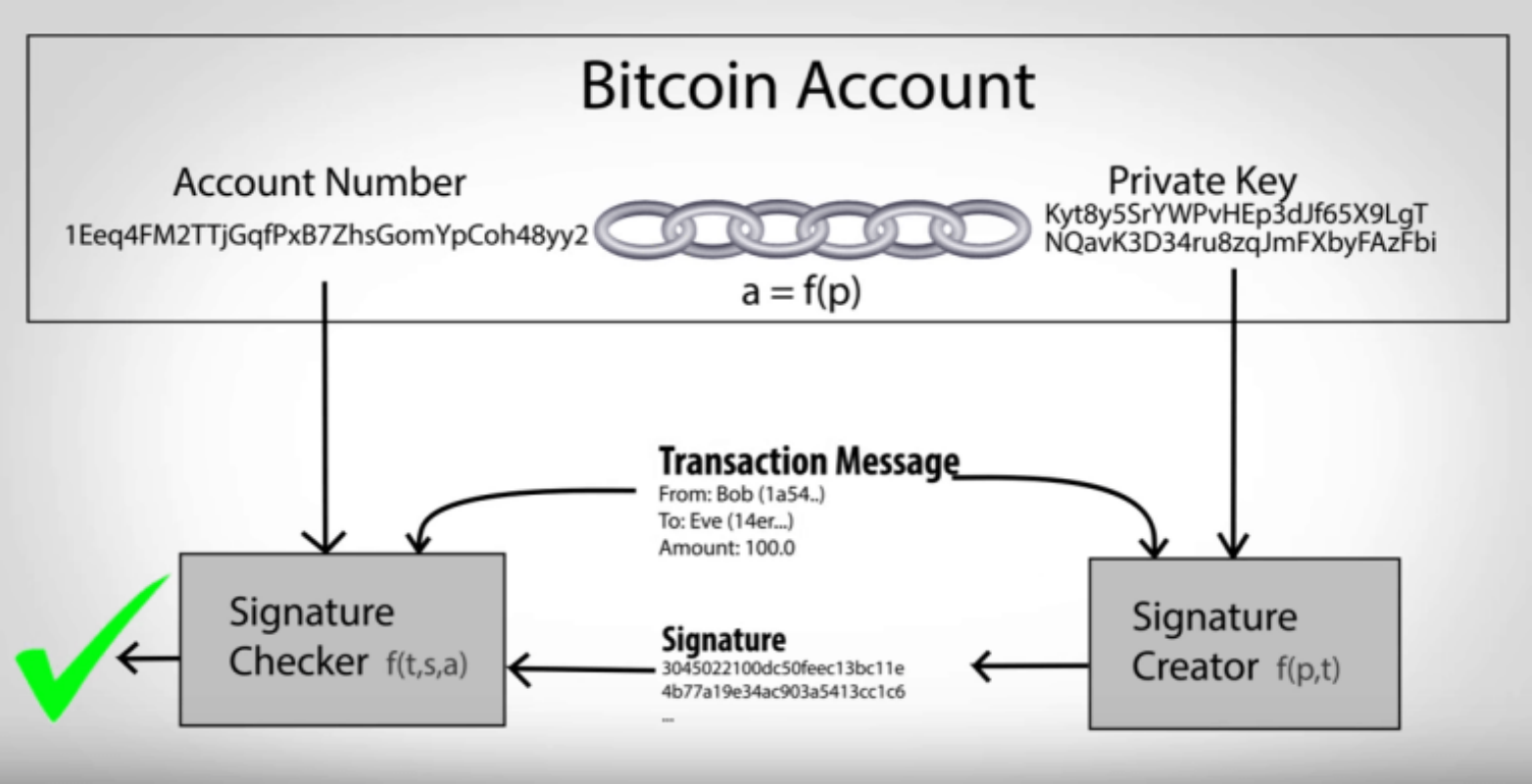Content
- Us Spacs Refusal To Merge With Hong Kong Crypto Firms Raises Questions
- Compliance Experts On What To Expect From New Fatf Vasp Guidance
- Proposed Rule Changes To The Funds travel Rule Nprm
- The Block Research Presents The 2022 Digital Asset Outlook Report
- Defi, P2p Exchanges, And Nfts
- Most Countries Have Failed To Implement The Fatfs Travel Rule
- Fatf Updates Its Global Guidelines For The Regulation Of Virtual Assets With An Eye To Emerging Technologies
- Kpmg: Virtual Asset Service Providers Ready To Professionalize And Grow

The Financial Action Task Force – an international agency which is intended to tackle criminal activity across the globe, is set to issue the first set of rules regarding cryptocurrency regulations in 2019. It’s a good idea for crypto businesses to keep an eye on FATF guidance to be prepared for possible changes in their jurisdictions. Otherwise, businesses may leave themselves open to penalties, as implementing KYC tools may take time—even when outsourced. Singapore’s approach to and regulatory treatment of cryptocurrency has been pro-active and open-minded to accepting and recognising VASPs in Singapore. However, as Singapore’s reputation as a financial centre is built on clarity, transparency and stability, it will be important for VASPs to be bound by MAS regulations, the overarching guidelines provided by the FATF and the Travel Rule. Traditional forms of regulation from the fiat world do not reciprocally apply to every aspect of crypto nor to the fundamental nature of blockchain technology. However well intentioned they may be, because these imposed regulations are built on an old system, they must be adapted and modified.
Our last US newsletter covered new #FINRA guidelines, #CFTC whistleblowing, #FATF #cryptocurrency guidance and the #SEC report on Meme Stocks. Catch up and subscribe for the latest insight#regulation #bovillhttps://t.co/4fOn3sxqdE
— Bovill (@Bovilltweets) December 9, 2021
The virtual asset sector has always attempted to avoid these financial barriers, valuing the anonymity of the “customer,” with service providers often being a node running on decentralized code with no knowledge of a customer’s background, identity, or previous transactions. In a meeting last week, FATF President Marcus Pleyer said that finalized guidance will provide more details for the definition of virtual assets and VASPs. FATF President Marcus Pleyer reiterated in a press conference today that the guidance itself has not amended any standards related to virtual assets or virtual asset providers , but rather provides „more detailed information on how countries and the private sector can implement the FATF standards.” There are several third-party solutions in various stages of development or implementation that may enable the more reliable detection of transactions with a counterparty VASP, based primarily on various means of blockchain intelligence or analytics. The success of these solutions may depend on their wide adoption by VASPs so that a network of VASPs can readily identify one another and facilitate the secure transfer of required information. The Guidance urges government authorities to engage and cooperate with each other and the private sector on potential applications and solutions for Travel Rule compliance. The Trump administration announced in May this year it would withdraw from a 2015 nuclear agreement with Iran alongside the reimposing of economic sanctions that restrict Iran’s access to U.S. dollars.
Us Spacs Refusal To Merge With Hong Kong Crypto Firms Raises Questions
Countries are advised to the extent possible to identify entities in stablecoin arrangements that are obliged to comply with FATF standards and conduct a risk-based assessment to mitigate money laundering risks. DeFi usually isn’t decentralized—FATF warns regulators to not blindly accept the crypto industry marketing that loosely calls various platforms “decentralized.” In function, these platforms typically have a natural, if not legal, person somewhere who controls or influences their activities. The term “controls or influences” is key and offers a framework to analyze who should be the entity obliged to follow AML/CFT regulations. FATF offers a broad playbook for bringing DeFi platforms under regulatory oversight, including one suggestion that if a DeFi platform truly has no entity running it, a jurisdiction could order that a VASP be put in place as its obliged entity. The Financial Action Task Force is a supranational body that develops and promotes global standards concerning financial regulation and which exerts great influence over related policies within local governments.
- The Travel Rule extended these anti-money laundering and counter-financing of terrorism (AML/CFT) obligations to cryptocurrency transfers valued at USD 1000 or more and applies to Virtual Asset Service Providers such as cryptocurrency exchanges and digital wallet providers.
- However, FATF can apply substantial pressure on non-compliant member states in the form of blacklists and failing grades in policy audits.
- The Guidance suggests that government authorities consider options to mitigate these risks, such as affirmatively requiring that a regulated VASP be involved in any DeFi arrangement or implementing mitigation measures similar to those for P2P arrangements.
- In light of the rapid development of the range of financial functions served by virtual assets, the FATF will also review the scope of activities and operations covered in the amended Recommendations and Glossary in the next 12 months and consider whether further updates are necessary to ensure the FATF Standards stay relevant.
- A number of countries worldwide are reportedly setting up a new cryptocurrency system to help them comply with the FATF standards.
As cryptocurrency transfers occur on the blockchain itself, these details cannot be sent as part of those messages. There must be a balance between reducing the risk of money laundering and terrorist financing and the open nature of cryptocurrency. The Financial Action Task Force ’s long-awaited update to its guidance on virtual assets lays out a comprehensive set of guidelines to regulate the quickly evolving cryptocurrency space. With this update released, digital assets firms in the coming years are likely to encounter more clarity on anti-money-laundering and combatting the financing of terrorism (AML/CFT) regulations around the globe, even if some jurisdictions do opt for more restrictive policies than others. In a statement the FATF said that “Virtual assets and related financial services have the potential to spur financial innovation and efficiency and improve financial inclusion, but they also create new opportunities for criminals and terrorists to launder their proceeds or finance their illicit activities. The FATF has therefore been actively monitoring risks in this area, and issued guidance on a risk-based approach to virtual currencies in 2015.
Compliance Experts On What To Expect From New Fatf Vasp Guidance
Much of the June 2019 guidance is directed toward countries and their Financial Intelligence Units . The FATF maintains a perspective that due to the anonymity of users and the potential to obfuscate transaction flows, virtual assets pose greater money laundering and terrorist financing risk and therefore may require enhanced due diligence and additional regulatory scrutiny. This may be manifested as additional regulations for VAs and VASPs, but it also may include complete bans on VAs, VASPs, or both. While the original standards contained in the draft guidance from March this year have remained unchanged, after 6-months of public and private sector consultations, FATF decided to update the original guidance with clarifications on the application of those standards to virtual assets and virtual asset service providers . Today FATF issued updated regulatory guidance on virtual assets and virtual asset service providers. The FATF Recommendations require monitoring or supervision only for the purposes of AML/CFT, and do not imply that virtual asset service providers are subject to stability or consumer/investor protection safeguards, nor do they imply any consumer or investor protection safeguards. At this time, virtual asset service providers in most jurisdictions are not regulated for the purposes of financial stability or for investor and consumer protection.
Cryptocurrency firms could be forced to take greater steps to combat money laundering under new guidelines released on Thursday by the Financial Action Task Force, an international body that coordinates government policy on illicit finance. Unfortunately, as is often the case with cryptocurrency regulation, different operators in the cryptocurrency industry can easily be grouped together under the same expectations and limitations. The new FATF guideline to define a VASP can cause issues for growing VA sectors, such as decentralized autonomous organizations .
Proposed Rule Changes To The Funds travel Rule Nprm
FATF has made it very clear in the new report that stablecoins will be under pressure in the future, noting “stablecoin” is not an accepted legal term, and simply a marketing term created by their promoters. Still, it’s an improvement over the April wording, which suggested targeting entities involved in DeFi “business development” and explains that individual governance token holders are not to be considered VASPs as they don’t exert the afore-mentioned “control or sufficient influence” over the DeFi arrangement. Vincent Gaudel, a financial crime compliance expert at LexisNexis Risk Solutions, told Crypto Investor he thinks some of these DeFi technologies have raised major red flags at FATF – even if they haven’t directly said as much. The interVASP Messaging Standards is an industry standard for exchanging Travel Rule information, establishing a universal common language for communication of required originator and beneficiary information between VASPs. IVMS 101 was created by the Joint Working Group on interVASP Messaging Standards —a working group of over 130 technical experts from around the world. Under the PSN02, Singaporean VASPs must comply with these travel rule obligations in order to qualify for licensing. The development team behind Tornado Cash, an Ethereum-based transaction mixer, announced Wednesday the launch of an upgraded pool, dubbed Nova, as part of a longer-term improvement plan.

In June 2019, the FATF laid the foundation for comprehensive crypto regulation by officially adopting a February 2019 amendment to its Recommendation 16 on Wire Transfers. This new update, referred to as the so-called FATF Travel Rule due to its U.S. origins, requires VASPs to share specific user information with other VASPs for transactions that exceed 1,000 USD in value, much like traditional financial institutions do. The October update has retained most of its April key points and suggests that counter-party VASP due diligence is going to become more complex and important, which may bring traditional banking-type requirements to the crypto industry. The FATF travel rule, the unofficial name for FATF Recommendation #16, requires banks to collect and share personal information about the participants for transactions exceeding $1,000. The proposed rule would apply to convertible virtual currencies and would explicitly apply the Travel Rule to US exchanges, trading desks, ATMs and custody providers in the very near term. As a result of this regulatory expansion, crypto transactions of S$1500 and less fall under travel rule regulations in Singapore and require originator and beneficiary names and account numbers.
The Block Research Presents The 2022 Digital Asset Outlook Report
Countries can be flexible in how they implement this recommendation, creating a completely new authority, or simply merging the responsibility with an existing agency. At a minimum, VASPs should be registered in the country in which they are created, or in the case of a natural person, in the jurisdiction where the place of business is located. Countries are encouraged, although not mandated under the standards, to also require registration of VASPs that can be accessed in or are made available to people in their jurisdiction. In order to qualify for a license, VASPs must be able to demonstrate an ability to carry out their anti-money laundering obligations. Additionally, consistent with the recommendation for an expansive interpretation of the definitions of VASPs, the updated Guidance encourages regulators to evaluate the underlying activity of peer-to-peer platforms, and not their label or business model.
- The FATF notes that at some point in the development or launch of a peer-to-peer platform, an entity may have been involved that constitutes a VASP, therefore subjecting the platform to regulation.
- Finally, FATF’s proposed guidance includes provisions that could have a significant impact on future innovation in cryptocurrency.
- This article discusses the proposed bill, its bipartisan support as identified by hearings already conducted on the subject, and its implications for financial institutions if enacted,.
- Internationally, the most prominent monitoring body is the Financial Action Task Force , which outlines general guidance and determines best practices in anti-money-laundering practices and combating the financing of terrorism.
- “We will build and aggregate that material, using IBM tools, into an understanding of hot spots and routes and trends,” said Neil Giles, a director at global anti-slavery group Stop the Traffik that is participating in the project.
- Department of the Treasury proposed it in December , and many of the rules FATF suggests for jurisdictions go much further than that.
The „Updated Guidance for a Risk-Based Approach for Virtual Assets and Virtual Asset Service Providers” replaces previous guidance issued in April 2020. The service providers, or VASPs, in the title refer to cryptocurrency exchanges and money transmitters that handle digital assets. To meet the FATF Standards, most countries are now in various stages of rolling out regulations that require VASPs, also called crypto asset service providers , to first register with their national financial regulators, and then secondly, receive an official license to operate.
Defi, P2p Exchanges, And Nfts
Despite spearheading the endeavor, the ING Group reportedly has no plans to enter the crypto-assets business. As for the United States, implementation of the FATF’s updated guidance is unlikely in the near future. “Implementation of any of the guidance’s recommendations would require the United States’ enforcement agency for money laundering and terrorist financing, the Financial Crimes Enforcement Network , to go through a public rule-making process, which would take months,” wrote the U.S. Implementation of the travel rule has been uneven, giving rise to the “sunrise issue” with some VASPs having to comply with regulations while others don’t. FATF’s latest guidance also reiterates its call for regulators to urgently implement the travel rule, which requires crypto companies to share identifying information on the originator and beneficiary of crypto transactions. The updated Guidance clarifies the procedures that VASPs need to undertake to comply with the “travel rule.” This rule was imposed on VASPs in the 2019 Guidance, and requires that they exchange identifying information for transfers above $1,000 between obliged entities. The updated Guidance advises countries to maintain records of originator and beneficiary information for VA transfers, and to be prepared to produce that data upon request by the appropriate authorities.

Details of the session released in FATF’s 12-Month Review of the Revised FATF Standards on Virtual Assets and Virtual Asset Service Providers offered a hopeful outlook for VASPs and the greater cryptocurrency Cryptocurrency Regulations Around the World community. As cryptocurrency, decentralized finance , and other uses of blockchain technology continue to proliferate, global regulators are grappling with how best to regulate their use.
Most Countries Have Failed To Implement The Fatfs Travel Rule
Under this proposal, non-custodial services like DeFi protocols would be regulated as VASPs if they enable users to exchange or transfer funds. FATF would even apply this regulatory framework to cryptocurrency businesses that in the future utilize new innovations that don’t exist today, and require them to follow VASP regulations before launch. In addition, the guidance would have implications for non-fungible tokens , self-hosted wallets, and the Travel Rule. If you are tracking FATF developments on virtual assets, then you are already tracking the „Travel Rule,” a key AML/CFT measure which mandates that Virtual Asset Service Providers obtain, hold and exchange information about the originators and beneficiaries of crypto transfers. In other words, a VASP needs to know where the crypto came onto its service from and where it is headed. FATF points to what it sees as insufficient implementation of the travel rule or the development of so-called travel rule solutions as disincentivizing „the private sector, particularly VASPs, to invest in the necessary technology solutions and compliance infrastructure to comply with the travel rule.” „It explains how the FATF standards apply to stablecoins, and it addresses the risk for peer-to-peer transactions and illustrates tools to identify and mitigate these risks. The guidance also covers the so-called travel rule and includes principles of information sharing and cooperation among supervisors.”

The good news is that it’s not as bad as last spring and even includes some specific changes that Coin Center recommended. The bad news is it remains far too vague and verbose to actually create reasonably clear and narrow limits for surveillance obligations. For the growing NFT (non-fungible token) market, this guidance is likely to be of some relief since it indicates that it does not consider most assets that are bought for purely speculative purposes to be virtual asset subject to legal scrutiny.
David Zaslowsky has a degree in computer science and, before going to Yale Law School, was a computer programmer. He has been involved in cases in trial and appellate courts across the United States and before arbitral institutions around the world. The proposed guidance also notes that VASPs will likely need to adopt blockchain analysis and other tools in order to conduct the counterparty due diligence demanded by the Travel Rule.
U.S. Strategy on Countering Corruption Signals Focus on Enforcement – Gibson Dunn
U.S. Strategy on Countering Corruption Signals Focus on Enforcement.
Posted: Tue, 14 Dec 2021 02:03:12 GMT [source]
Author: David Pan
Add a Comment